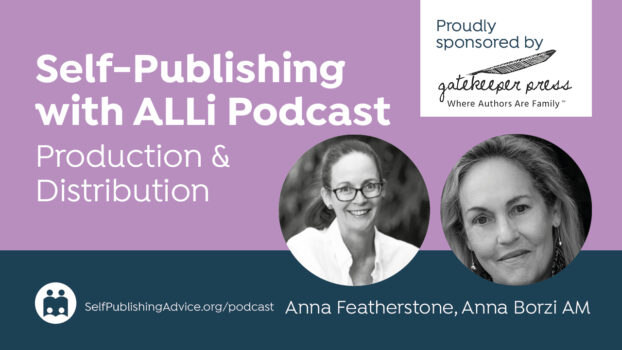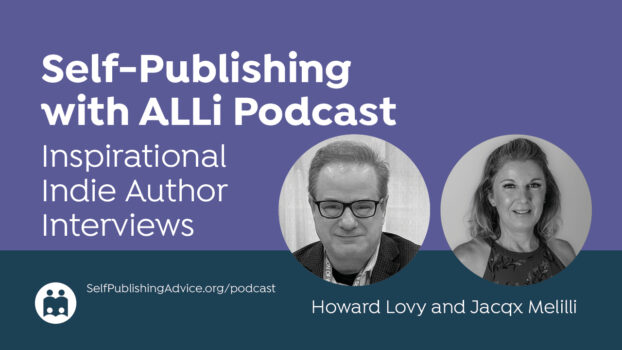
Indie Authors: Don't be a peacock flashing your tail feathers on the Web. Reach out to your readers with the motives that inspired you to write and self-publish your book.
Marketeers say the key to promoting a book is to take off your writer's hat. But, argues Orna Ross, that makes indie authors vulnerable to crass self-promotion. The key, she says, is to connect your reach-out to readers with your deepest motives for writing the book in the first place.
As soon as Michael came into the party, it was obvious he had no interest in anyone but himself. If somebody else was talking, he was clearly waiting for them to stop, so he could speak.
He moved around the room to as many groups as possible, crashing his way in with no real interest in the people there, and leaving abruptly once he'd said what he wanted to say. Acting the peacock, showing off his display, expecting attention and oohs and aahs from all.
Want to spend time with Michael? Didn’t think so. But are you emulating him on social media?
Social media is one big Internet party and if you want to do it well, you need to genuinely connect with your readers, not just see them as prospective buyers.
But how, is a question members often ask? What should I write? Where should I post? That confusion arises from a conflict of creative intention. We write the book wearing our writer's hat (creatively motivated). Then we try to sell the book wearing our publisher's hat (business motivated).
But when it's a book we've just written, we're not really detached enough to be business-like. So we default to saying: Buy My Book, Please Buy My Book, Won't You BUY MY BOOK!!!!!
It's a universal conflict of interest for self-publishers. And – unlike most of the marketeers – I don't think the answer is in becoming more business-like. Rather I believe you should trust in your reasons for writing when you reach out to your readers. Your reasons for writing in general, and for writing and publishing this book in particular.
What was your Motive in Writing your Book?
“To become a kindle millionaire,” you may say, or some such, but these outer-driven reasons are only part of the story. That energy may have taken you through some of the time and effort it took to get your book written and published.
Underneath, whether acknowledged or not, was the real fire, the creative energy, coming from a deeper place.
Creative motives for writing a book fall into three categories. Wanting to:
- inform or educate;
- inspire or motivate change;
- display or entertain.
Each of these creative intentions has service at its heart.
Underneath the worldly motives, the ego trips and personal wants, we write to assuage a need in ourselves, a need that is shared by those who are attracted to our words.
This is what I call the ‘point of service', and it is there that you go to reach your readers.
Writing As Service
Question 1: Do I write chiefly to inform, inspire or entertain? (The better the writing, the more it contains all three, but which is your chief motivation?)
Question 2: Whom do I most hope to interest, inspire or entertain? (Again, the better the writing, the more it will move beyond our core cohort. But who is that core cohort? Which sex? What age? Nationality? Income? Interests? I urge you: don't just think the answers to these questions, write them out. Also answer this: what other books do these readers read? What are the meeting points between those books and yours? If you were to overhear one of your readers saying, “I love x's books because they…..” how would you like them to complete that sentence.
The members of ALLi who do best are those who understand their readers best.
Question 3: Where are your readers online? You are an indie author. Most of your sales will be ebooks and many of your readers will not be in your home territory. So you must reach out to your readers online. Where are they on the internet? No point in you being on Facebook if they are largely on LinkedIn or GoodReads or Pinterest. No point in addressing a forum of females if you write action-based, spy thrillers.
You're an indie author, you've got writing and publishing to do as well. Your time is limited. So make the Pareto Principle work in your favour. Forget about 20%, concentrate on the majority, the 80%.
And you must set out with the intention of enjoying the social dimension of social media.
[Important Note: if you don't, if you can't, enjoy social media — and lots of writers don't and can't — then forget about it. Truly. No matter how many times you're told you must do it, there's no point if you're temperamentally disinclined. It will just be a massive waste of time, and immensely frustrating. You're much better to put that energy into writing your books and trust that you will eventually break through, using Amazon's tools and suchlike. Social media does provide a strategy to increase the odds in your favour (and every book is working against the odds), as something you can grow and progress over time. But it is absolutely contingent on you being able to enjoy it. It can't be faked, any more than a book can be faked. You have to be you.]For the socially inclined:
- Go where most of your readers are most likely to be found. Find their forums and blogs, the largest ones, where most of them hang out.
- Listen in on their conversation. Take your time with this phase, as long as is necessary for you to understand these people. Don't be a Michael: no need to speak until you've something worthwhile to say. Listen. Enjoy their chat. Hone your understanding of their concerns. You love them already, right, or you wouldn't be writing for them. Deepen that respect. Learn from them. How might you be able to help? Inspire? Entertain? Amuse? Inform?
- As you listen, think of your book, of its deepest messages, of its raison d'etre. When the time feels right, make a comments or initiate a conversation that arises from the same impulse. Not with the intention of flogging your wares, but with the intention of serving these people in the same way that your book serves them.
- Have a link to your book or website , so those who want to know more, or to buy your book, can. Make it easy for them to do so.
That's it; that's the key to social, I believe, having observed a thousand indies at work. As you connect and chat, hold fast to the same intention that prompted you to write your book — of being interesting, informative or inspiring in your particular way (or all three, which is a lot easier in a short comment than in a long book, is it not?).
If you follow take the trouble to go where your readers are and reach out to them regularly, they will spontaneously want to share with you, learn from you, hear from you, grow with you.
You will organically develop that indie author desirable: a strong author platform.
And, hey, you'll have fun. And make new friends. All the while knowing you're simultaneously serving your own deepest needs for self-expression and service.
For further advice and contacts, join us.
The world's best indie authors & advisors:





Great article! I’d love to find that treasure trove of readers, all I seem to find is other authors (and they’re awesome, btw). But how do I find these readers?
Old post, but I can’t believe no one called out the author of this piece on this, and I quote, “No point in addressing a forum of females if you write action-based, spy thrillers.”
Really? And I mean, really?
Orna, I really thank God for running into this blog. Thank you, my dear. But you are God’s instrument for me. Your blog is my forum to meet other literary writers for a new genre.
It has nothing to do with religion. But it is the kind of genre that would seamlessly neutralize the current information pollution that our children and youth are fast absorbing from almost every communication medium. For instance, a few weeks ago, my 9-year old grandson was watching his favorite movie when he saw a boy set a neighbor’s house on fire. I happened to be around to see it happen. On seeing it I screamed, ” how can such an innocent boy commit such a crime”. Here’s my grandson’s reply “Grandma, it is not a crime. It is just an art. He is smart, see how he did it, see how he is trying to cover it up”. I am hoping this genre would start in the US and then spread all over the world – better society, better world. Writers if you’re interested in this genre contact Dr. Marian-Stella Araka at [email protected].
Great tips! That’s how I’m promoting my new book – Editor’s Guide to Writing a Book on a Shoestring Budget. I would love anyone’s advice on how I can reach groups of independent authors of all levels of experience and progress. Great read! Thank you. 🙂
[…] less daunting and a little less obnoxious. Like the words of wisdom from Orna Ross in her post https://selfpublishingadvice.org/how-writers-can-reach-readers-without-self-promotion/ Ross suggests that we connect to readers by tapping into our “deepest motives for writing the […]
[…] PS2. Orna Ross (on the Alliance of Independent Authors blog, Self-Publishing Advice) wrote a post that might be of interest for people who don’t take easily to self-promotion. […]
I already have my author page on Amazon. Learned about more must-do’s here. Have this bookmarked. I am a new Indie Author. Many thanks! Bette
It’s what we’re here for, Bette!
Now that I’ve been listening to this cocktail party in complete silence…could I just…no perhaps not. I shall just get my hat and coat and mutter ‘well there are some sane and balanced people writing after all’
[…] 1.   It's not about saying 'Buy my book'; 'Look at this review about my book; 'Here's why you'd like my book'. Check out ALLi guide to reaching readers without self-promotion first. […]
[…] How Authors Can Reach Readers Without Self-Promotion by Orna Ross […]
Thanks Bobbi. Have you seen this video that Melissa posted in the member-only group: http://www.youtube.com/watch?v=_jMmZItTFO8&feature=youtu.be. A sort of how not to do it that might give you a moment of gigglement. Hope the writing goes well.
Orna, this article really resonated with me. It is easy to forget that patient, constant effort and coming from your heart’s true place is the key not just to success, I think, but to one’s overall satisfaction with their endeavor. Thank you for reminding me that it is the quality and thought I bring to what I get up and do every day, day by day, that matters. Lovely!
[…] They commit time, 20 minutes or more a day, every day, to reaching out to readers from the same spirit of service that made them write their book. Â Make own personal plan that will […]
Richard, I think it very much depends on the genre — and I also get the sense that it is changing, that people who were susceptible to the hard sell are becoming inured. As your own choices so perfectly demonstrate, success for an indie author is not so much about selling cartloads of books as finding a sustainable relationship between writing and selling, the approach that works best for you as a writer, ongoing. Returning to the spirit of the book itself and the motives for writing it is the only sustainable key, keeps us connected to our creative impulses and why we wrote it in the first place.
Kea, ALLi members are the greatest! We all learn so much from each other. The Alliance has just taken on a YA Advisor, as this is such a growing genre. Did you see the GalleyCat feature yesterday: http://www.mediabistro.com/galleycat/childrens-ya-sales-up-40-this-year_b59070
Orna and commentators: I’m coming away from this post feeling like I was just at a social media cocktail party with a great bunch of folks…intelligent and thoughtful. I do see some people who honk the loudest becoming successful. However, I’ve seen the opposite as well. My biggest problem is getting into the right niches. I’ve met great writer folk and enjoy that, but my novel is Young Adult fantasy, and while many readers older than my demographic love it, I find it tough trying to angle my way into YA environments. It’s not that I can’t relate to them. I believe I can. But I have a tough time finding them, and when I do, I feel like I’m intruding since I’m 42. So that’s where I’m trying to find a balance now. Last night I told my husband I should throw a vampire into book two just to see what happens! (not!)
Great article.
At the risk of sounding like I’m promoting my blog, I’ve just done a short piece on the supportive community of Women Speculative Fiction Writers here in Australia. I think the camaraderie of these women in what could potentially be a very small market, is an inspiration.
The truth is, every friend you make and peer you support is worth a whole lot more than any self promote you could ever do. The lesson is don’t use other people as a ladder, try instead to be someone who is known as a support and then the word will spread far more seamlessly.
The blog entry is here http://parttimelunatic.wordpress.com/2012/10/04/the-great-aussie-women-of-spec-fiction/
A good piece Orna and well said. It takes time (and patience) to find our best hangout and build up these kind of relationships, and it should be our main approach. However like many things in life, balance is important. One author I follow on Twitter was so reticent to talk about her book that I didn’t find out that she had a new one out for months after the date, which for me defeated the purpose of me following her. There is a way to talk about our books without the hard sell, just a simple natural sharing as you would in any conversation. If I was talking to you at a party, would you mind if I said, “I got a fantastic review the other day, it made me feel as if this writer business was all worth while.’
I enjoy Tweets that give insight into the nature of a book, or share the author’s excitement over a new release or a great review, and I do it myself. I don’t see that kind of thing as a hard sell message, and it certainly doesn’t offend me or turn me off. I do click through and sometimes buy books from these kind of tweets, and I’m pretty sure that if I didn’t tweet a lot about my free days on Amazon, few people would download the books. (I’ve got one happening now, so I’ve better get Tweeting) There are periods of time when we do need to mention a book quite a lot, eg sales, free days and new releases, so long as we don’t only talk about our books all the time, I see no problem with that. I think it’s part of an overall approach.
As you point out, it’s about the motivation behind what you do, and I think there’s a difference between sharing information that you figure your friends and followers actually might like to know and ramming a ‘check it out’, ‘buy my book,’ message down people’s throat.
Richard, I can tell you with absolute certainty from a reader’s perspective, if you try and hard sell me ANYTHING, I will resist. I have too many options out there, as a reviewer, to choose from. I have a lot of people who pick my name on Twitter and I never follow them back because it’s all hard sell. I want to see who you are and how it relates to writing. We’re not going by the book judging anymore: it’s author judging. That’s a new fact.
There are so many different genres, subgenres, sub-sub genres, that I often flit from one to the other. Loud doesn’t work with me. To use a NYT best selling author example, I loathe J.R. Ward. I’m one of the few romance readers that truly does. Being loud, splashy, etc didn’t make me like the work. The same with a self-published writer who is everywhere with a neon dart over their name with “buy me!,” like a character in a Zynga game. I read self-pub often because there are lean times and I have more choices in the less than agency priced arena. But if I find out about an author hawking their wares at me non-stop, I put them on my “not gonna happen” list.
As an English major with a concentration in rhetoric and writing, message is very important me. Not just the book’s, but the author’s as well. And I know a lot of reviewers who feel the same, because at the heart of it, we review because we love to read.
[…] How Writers Can Reach Readers Without Self-Promotion by Orna Ross at How to Successfully Self-Publish […]
The reality is that those that sell hardest sell most. They do upset people yes, but their shout gets through often enough. What the loud really do, apart from selling loads of books, is upset the market for the “nice” authors. They benefit and we all get tarred.
There is no answer to the question of what is the right thing to do. Some have spectacular success by shouting crap- they sell crap by the bucket load. Advertising works, period. Subtle advertising works no better than the crudest.
We like to think that being a good listener, and responding thoughtfully wins success because to think otherwise is too demoralising- but the loud will always sell more than anyone else.
I am not often loud. I know this will mean selling less, but accept it happily in the forlorn hope that a majority of people will continue to do the same. Society should come before personal ambition. Unfortunately all to often it doesn’t.
A subject dear to my heart as you know (and I’m a massive believer in 1000 true fans). I think most writers probably already hang out with the people they are writing for, but often don’t realise it. And quite possibly when they don’t, it can be because they are trying to mine what they see as a lucrative vein (just a musing, not anything so categorical as a theory).
And I’m still wet behind the ears and naive enough to find it boggling that people need to be reminded of their creative reasons for writing! (I want to change the world – and I wouldn’t say no to being the first solely self-published author to win the Nobel Prizealong the way, but that’s incidental to wanting to push the boundaries of the literary canon, inspire people with what words can do, and play a part in helping people understand their identity and (dis)connectedness in the modern world. I figure on the aim for teh stars and you might just crawl out of the basement model!)
Splendidly put, Orna, There remains great swathes of new writers still trying to put to practice very dated advice about this (which amounts to nothing more profound than SELL! SELL! SELL!), and with the best of intentions shooting their own credibility through the back of the head while they do so.
Althea – good books find readers. It’s a long game, these days, and I think there are almost no ‘quick win’ strategies. You’re a writer first and foremost – do that, and let your own ‘marketing strategies’ evolve to suit you, rather than trying to squeeze into a one-size-fits-all model. Publishers WANT quick wins, understandably from their point of view, and when they see something work they’re inclined to try to impose it on their whole stable, whether it’s actually replicable or not. I think you’re well justified in resisting such pressures.
This is a thorny issue. Before I published my book in August I’d been blogging and on Twitter, Facebook etc for about 3 years. Of course I wanted to let all the people who’d asked me about the novel know it was finally out, and posted a few simple notices with a link. (Which I still do) You can’t expect everyone to check out your profile to find a link to your work, especially if you’ve been cyber friends for ages. So I think some amount of self pr is necessary, as long as it’s not the only thing you talk about.
Helena
I agree with this – but. The present idea about any book these days seems to be to promote the author – more than the book. I hate that, because I want my books to say what they have to say ( specialist non fiction) and I want to keep out of the picture. But publishing publicists say that I “should not be afraid to be in public view” and there “must be something wrong with me if I don’t”. All kinds of stuff about low self esteem etc. What rot. Nevertheless, very reluctantly, I have begin to do a little self promotion because that is what I am advised to do. Nonetheless, I will keep self promotion to the absolute minimum. If my books aren’t good enough to stand alone, without me wittering on about how amazing I am, then I am not sure I want to be writer any more!
Totally agree with all of that Orna. I get really annoyed with people who swamp me with self-promotion messages and I hope I don’t do it to them. You have prompted me to re-evaluate my own conduct to make sure I’m not doing it.
This is really interesting – thank you. I think it’s a big problem. So many people are trying to promote their book that instead of one ‘Michael’, social media sometimes seems to be entirely populated by ‘Michaels’! What you say, Orna – and Linda and Roz – makes sense: take it slowly, build relationships, don’t rush madly from group to group. It’s what most of us would do in ‘real’ life – what is it it about the internet that turns us into frenzied shouters?
Excellent piece, Orna. I’ve long thought that social media is like a cocktail party. We flit from group to group, finding people we can hang out with and build relationships with. The relationships we perhaps used to build from face-to-face writer groups and book launches are now available to us all, in the ether – if we use them wisely. Because they are still relationships. Your example of the party bore takes that to logical and brilliant extremes – and then you add the all-important advice…. what do you talk about instead of giving your sales patter? Useful for us all – I’m off to share!
I couln’t agree more, Orna. You’ve summarised beautifully what it took me years to find out by trial and error. Every indy author should take this advice to heart. These methods do actually work – slowly but surely.